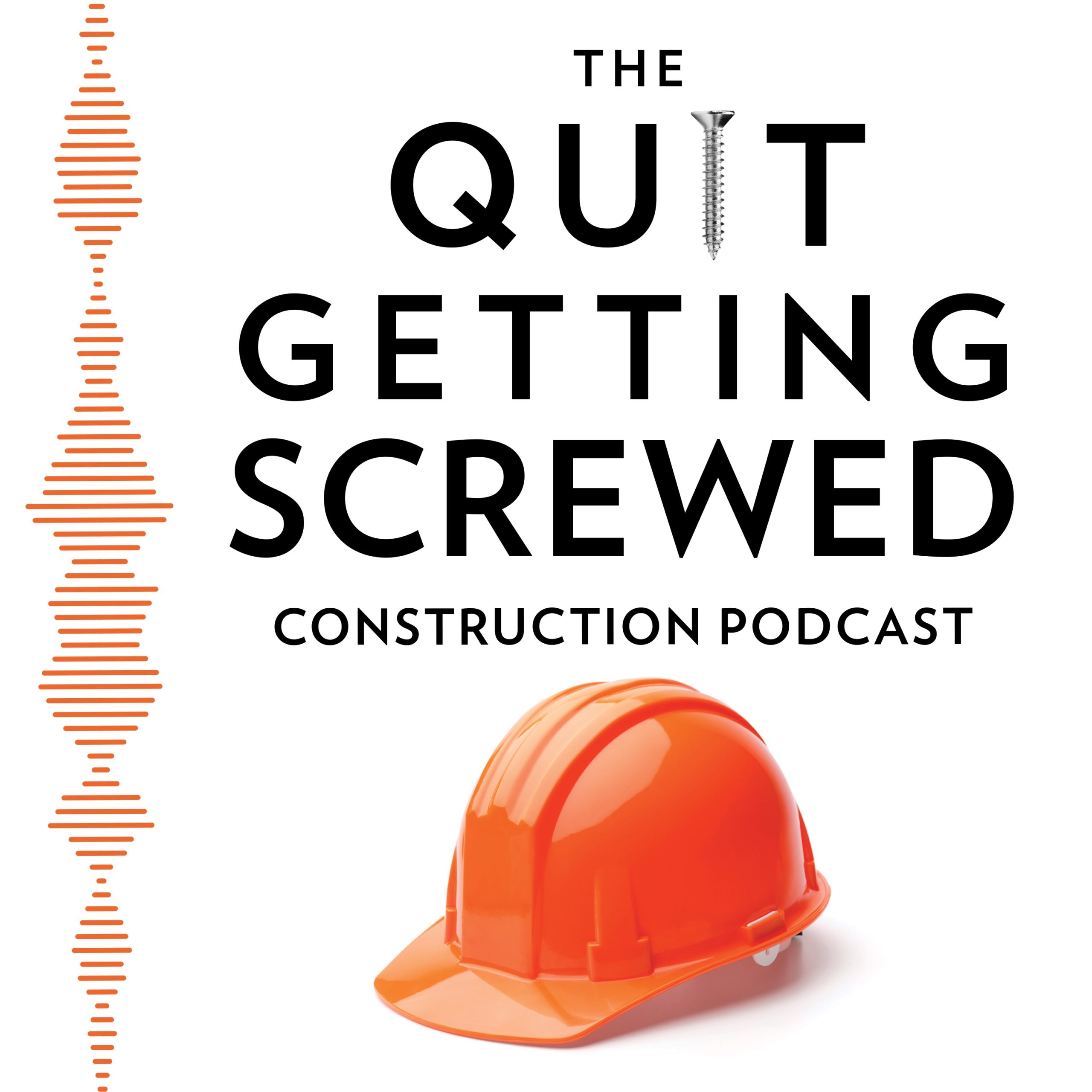with Griffin Tyndall
We’re back with another helpful segment on lien laws! In this episode of Quit Getting Screwed, Karalynn has brought on Griffin Tyndall to share his knowledge on Alabama liens. Growing up in construction, Griffin was able to take his love for handiwork and law and merge them to later become the founder of The Tyndall Firm, a construction-focused law firm. He has been practicing law for more than two decades but is still willing to grab the hammer and nails if need be. In this episode, he highlights some of the requirements for filing a lien in Alabama and a few other pointers and things to look out for.
While some states do not require contractors to have a license, Alabama does, and Griffin gives us the details on what the lien filing process can look like depending on what type of contractor you are. For example, while the requirement for a subcontractor is a little more lenient, a GC will not have as much flexibility. Regardless of leniency on the license requirement, Griffin explains that without one, a contractor faces the risk of working for free because the state of Alabama does not protect them. The best practice is to get licensed, and Griffin provides some guidance on doing that.
Let The Cromeens Law Firm Help You Quit Getting Screwed!
Collecting what is yours is crucial to the livelihood of your business.
We have a team ready to take your call to protect what is yours, collect what is yours, and help you educate yourself!
Diving into the necessary steps of filing liens and notices in Alabama, Griffin points out that there is no difference in filing for residential and commercial contractors. Still, there are two types of liens to consider. Full price liens and unpaid balance liens. “The distinguishing factor between the two is whether the lien claimant has a direct contract with the property owner or not,” states Griffin. He then gives details on which type of contractor is entitled to each lien type. This is important to note, because it can make the collections process a bit more complicated for the subcontractor. He also touches on a very important exception involving a specific notice that suppliers can give to the owner to position themselves to be eligible to file a full-price lien. Griffin clarifies that while the owner or GC can object, it is still a great way for suppliers to protect themselves and receive payment.
As we know, time frames on notices are slightly different from state to state. Griffin educates listeners on the appropriate timing in Alabama for lien notices, the deadlines for recording verified statements of liens, and how they may differ between GCs and subcontractors. Both Karalynn and Griffin agree that while deadlines are in place, filing as early as possible may be most effective.
Leased properties and public properties are also a big topic involving liens. Contractors may want to know what they are getting themselves into when picking up these projects. Griffin lays out the risks and what can and cannot be done to collect payment when dealing with leased or public properties in the state of Alabama.
If you’re an Alabama contractor, this episode of Quit Getting Screwed holds lots of solid information to help you with your collection strategy. Through a series of questions, Karalynn gathers everything one would need to know regarding how to file a valid lien in Alabama. Griffin engages each question with relevant details and advice for best practices in this area. If you are in Alabama and would like to consult Griffin, you can head to his firm’s website to set up a call. For more from Karalynn, follow The Cromeens Law Firm on Facebook, LinkedIn, or Instagram. You can also purchase the book that started it all, Quit Getting Screwed, on Amazon.
Episode Link: https://the-quit-getting-screwed-podcast.castos.com/episodes/episode-39-learn-your-liens-alabama-with-griffin-tyndall
This article is intended as a general educational overview of the subject matter and is not intended to be a comprehensive survey of recent jurisprudence, nor a substitute for legal advice for a specific legal matter. If you have a legal issue, consult an attorney.

